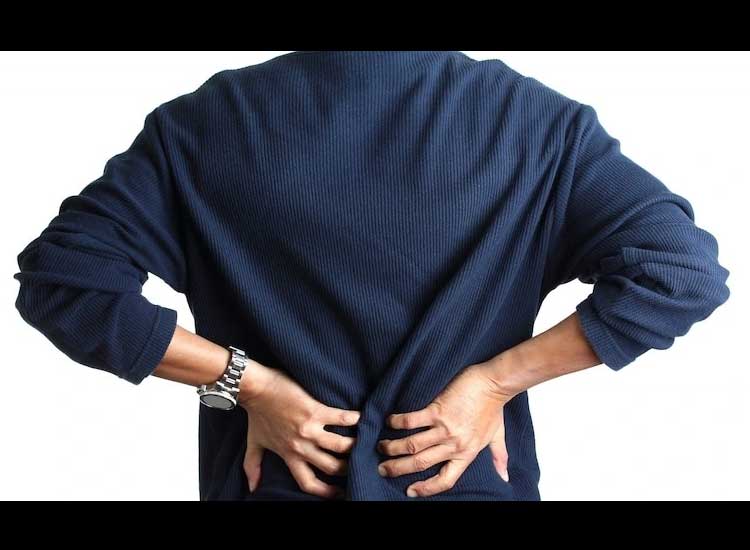Here are 7 Ways to Treat Early Stage Kidney Disease – “The way to treat early stage kidney disease focuses on maintaining kidney health as best as possible by making lifestyle changes. For example, managing blood sugar levels, maintaining normal blood pressure, and maintaining a healthy diet for the kidneys.” Jakarta – Having kidney disease means there is damage to your kidneys which makes the organ not function optimally.
This is a chronic disease, because kidney function slowly worsens over time until the organ eventually fails.
Kidney disease often causes no symptoms at first.
That is why this disease is often only discovered when it has developed at an advanced stage.
However, kidney disease is sometimes accidentally detected when a person undergoes urine or blood tests for other conditions.
So, if kidney disease is detected at an early stage, the treatment may still be able to restore kidney function to normal.
Therefore, find out how to treat early stage kidney disease here.
How to Treat Early Stage Kidney Disease
Because basically the kidneys are still functioning well, the way to treat early stage kidney disease is to focus on maintaining kidney function as best as possible with lifestyle changes.
The following lifestyles can be adopted:
1. Manage blood sugar if you have diabetes
You can manage blood sugar by reducing sugar intake, consuming more healthy foods, exercising regularly, and taking medication as recommended by your doctor.
2. Keep blood pressure normal
Apart from blood sugar, you also need to maintain normal blood pressure to maintain kidney health.
The following levels are recommended:
- 125/75 for people with diabetes,
- 125/75 for non-diabetics with proteinuria, and
- 130/85 for non-diabetes and non-proteinuria.
- 3. Have a healthy diet for the kidneys
Eat a healthy diet with lots of fruits, vegetables, and whole grains. Avoid intake of sugar, salt and fat.
Don’t eat too much protein, but make sure you get enough healthy calories.
4. Stop smoking
Smoking is known to damage the kidneys in various ways.
Therefore, try to stop smoking so that kidney damage does not get worse.
5. Exercise regularly
Exercise for 30 minutes a day, at least five days a week.
This can help you achieve and maintain a healthy weight which is good for kidney health.
6. Be careful when you want to take medication
As much as possible, avoid taking painkillers and other drugs that can worsen your kidney disease.
7. See a doctor
Ask your doctor if there is any medicine you can take to help protect your kidneys and take the medicine exactly as your doctor recommends.
Signs of Early Stage Kidney Disease
Because the kidneys still function quite well even if they are slightly damaged, most people do not know that they have early stage kidney disease .
If they find out, it’s usually because they are being screened for another condition, such as diabetes or high blood pressure, which are two of the main causes of kidney disease.
Early stage kidney disease is most often diagnosed in one or more of the following ways:
- Blood test.
- Urine test.
- Imaging tests, usually a CT scan or MRI.
If you have early stage kidney disease, your blood will likely show:
- Higher than normal protein levels, especially albumin.
- Urea levels that are higher than normal. Urea is the final product of protein metabolism which is usually excreted in urine.
- Creatinine levels (a waste product of muscle metabolism) are higher than normal.
Creatinine levels are what doctors use to calculate the stage of kidney disease you are currently experiencing.
They use it to calculate your eGFR, or estimated glomerular filtration rate.
This is to determine how efficiently your kidneys filter waste and impurities.
Healthy kidneys will function at 90% or better, so they will have an eGFR of 90 or more.
A person with early stage kidney disease will still have an eGFR of 90 or greater. Once eGFR drops to between 60 and 89, you are generally considered to have entered stage 2.
However, eGFR in this range can sometimes be considered normal, depending on your age, weight, gender, and various health factors.
Other signs of early stage kidney disease include:
- Blood in the urine, or hematuria (although this can also have other causes).
- A higher than normal level of protein in the urine, or proteinuria.
- Visible evidence of structural damage via CT scan, MRI, ultrasound, or x-ray with contrast.
Once you are diagnosed with kidney disease, you should have regular blood and urine tests to monitor kidney function and the progress of damage. J
If the disease progresses, doctors may eventually want to perform a kidney biopsy at a later stage to determine the extent of the damage, but that is not necessary in the early stages.
A healthy lifestyle and treatment for related medical conditions and risk factors, such as diabetes, hypertension, and heart disease, can help slow the progression of kidney disease, and keep your kidneys healthy longer.
Rekomendasi link :
- Bandar togel terbesar
- Prediksi Togel hk
- Situs toto
- Situs togel resmi
- Casino online
- Okewla
- Okewla
- Bandar togel terpercaya
- Situs toto macau
- Situs toto
- Situs toto
- Bo togel
- Slot Thailand
- Slot online gacor
- Casino online
- Togel casino
- Situs slot gacor
- Slot gacor
- Daftar situs togel
- Okewla
- Okewla
- Okewla
- Okewla
- Okewla
- Okewla
- Okewla
- Okewla
- Okewla
- Okewla
- Okewla
- Okewla
- Okewla


No Responses